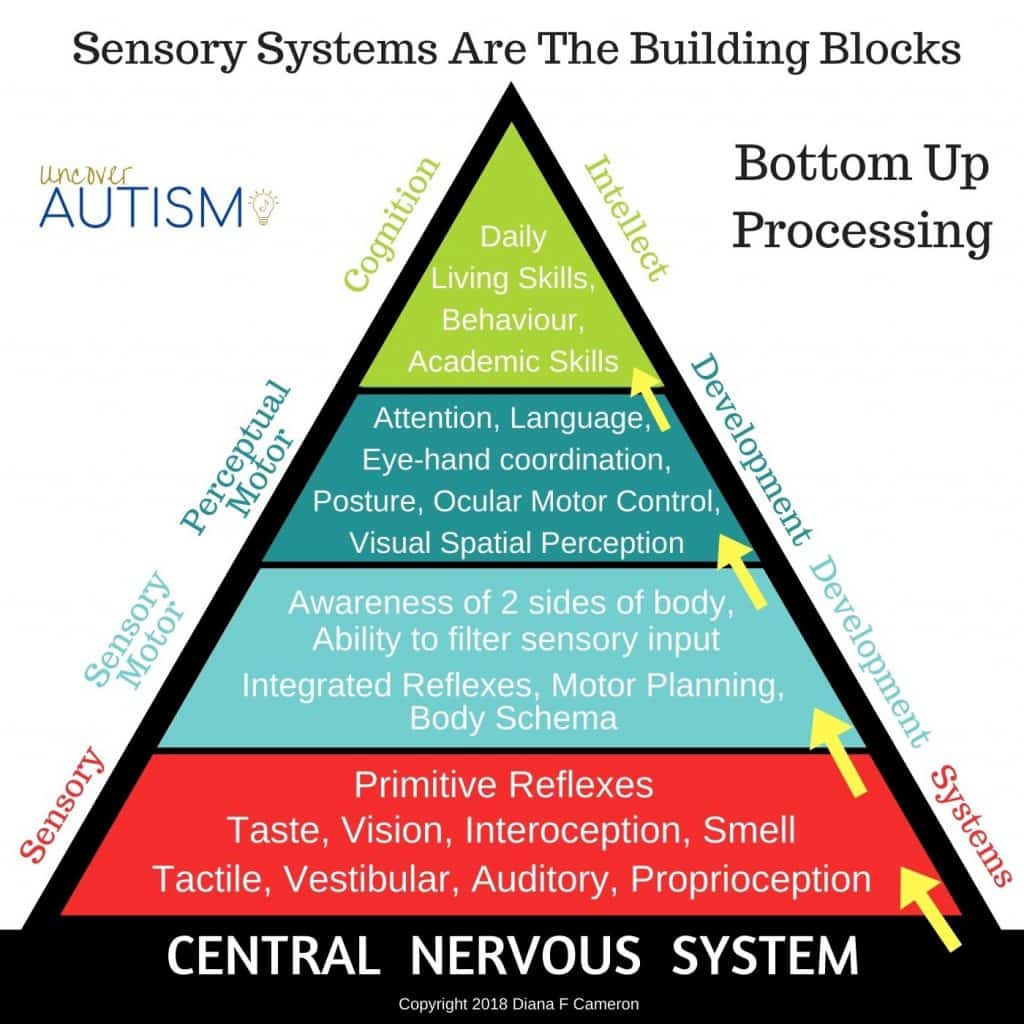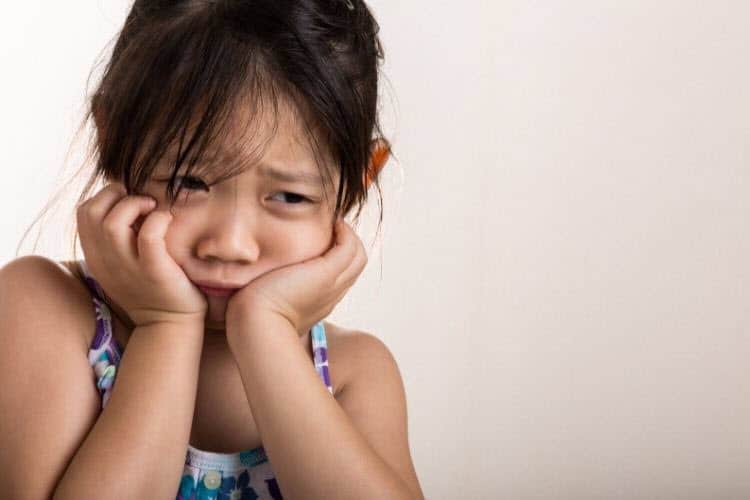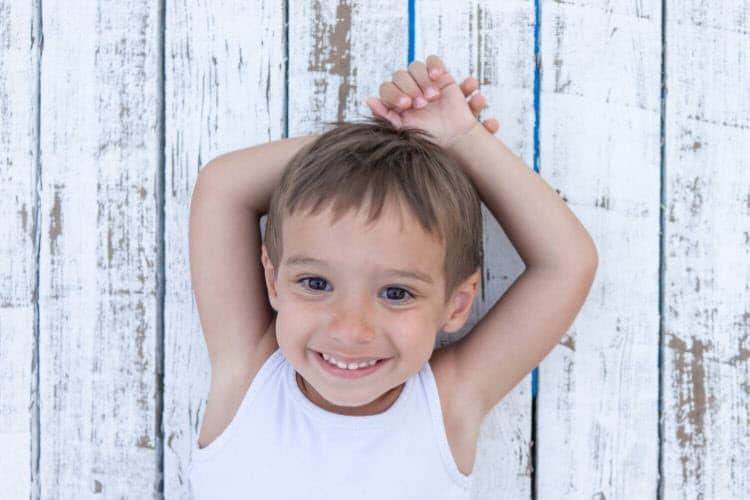COVID-19 has brought about a very unique set of circumstances into our lives which has been particularly challenging for those on the autism spectrum. There has been isolation, lack of contact with family, no physical contact, food shortages and it has all gone on for much longer than anyone could have predicted in the beginning.
One of the biggest challenges has been the change of routines which is incredibly unsettling for these kids. With a brain that is extremely focused on details and copes with one set of data at a time, COVID-19 has required us to manage multiple sets at once.

Children Have Limited Understanding of COVID-19
We know from previous child development information that children’s brains are not capable of processing things in the same way as adults. For children with autism, they have the added challenge of a brain that focuses on details and one set of data at a time. Children are sensory creatures, and their brains develop from the bottom up.
That means there is a highly organized way in which the brain interprets information and how children acquire skills.
Let’s look at the pyramid of learning. As you can see, the foundation of the pyramid houses all our sensory systems. Children interpret the world through their senses. When they are born, these senses are underdeveloped, and they have primitive reflexes that help them navigate the world.
Gradually, these primitive reflexes are integrated and replaced with higher level learning. Jerky, primitive movements become smoother, and the brain is better able to comprehend more difficult concepts.
For children with autism the sensory systems are usually compromised, which then affects learning that comes in the more advanced sections of the pyramid.

Our eight sensory systems make up the foundation and support all higher learning. Later you will see how COVID-19 and our resultant circumstances have interrupted the normal progression of more than one of these systems.
In the early stages, for example preschoolers, they are unable to understand an idea like 1+1=2.
This is an abstract idea that has no meaning to them. The brain is unable to process the information and relate it to anything. For them to understand, they need to use their senses. They need to hear, feel, see, touch – the more senses they can use, the easier and deeper the learning will be.
If you give a 4-year-old one apple, and ask them how many that is, if they have learned to count, they have a better chance of telling you it is 1 apple. Then if you brought out another apple, they would be able to count 1, 2 for each of the apples and work out there are 2 apples in total. This works because they have something concrete to hold and see.
If your child is not counting yet, this is the way to teach them the concept, starting with ones and twos and with something concrete to hold, touch and see.
If there are sensory issues, these can sometimes stop those types of concepts sticking in the brain and they just won’t retain the information.
So, children with autism don’t have the cognitive capability to understand what a pandemic is – it is an abstract idea. It isn’t something they can see, touch or hear.
They can’t comprehend what it is, why their routines have suddenly changed and why everyone is so stressed. Without being able to process complex information, the massive changes in their lives must be incredibly overwhelming.

What is Happening in the Brain?
The National Child Traumatic Stress Network (2020) stated the psychological responses to COVID-19 will change with age as follows:
PRESCHOOL
- Manifestations of fear
- Loss of appetite
- Increased tantrums and complaints
- Ambivalent anxiety
6 – 12 YEARS
- higher rates of irritability
- nightmares
- sleep problems
- appetite problems
- somatic symptoms
- loss of interest in peers
- excessive attachment to parents
13 – 18 YEARS
In addition to the physical problems:
- sleep problems
- isolation
- increased or decreased energy
- higher rates of apathy
- inattention to behaviors related to health care
For children with autism, anxiety can already be there because of co-morbid conditions such as auditory processing disorder, ADHD etc so add the anxiety of a changing routine, a global health crisis they can’t understand and it is all compounding.
Along with emotional and sleep difficulties … cognitive processes can be affected. It has been observed that stress, both chronic and acute, affects cognitive processes governed by the Prefrontal Cortex
Lavigne-Cerván et al
In February of 2020 a Spanish study clarified that it has been observed that stress (both acute and chronic) affects cognitive processes governed by the Prefrontal Cortex. We have certainly been exposed to acute stress with the effects of COVID-19 and it has gone on long enough for it to become chronic in nature.
To understand this more fully, we need to be aware of what processes the Prefrontal Cortex of the brain is responsible for. Then we will have a better understanding of issues our children may be dealing with,
The Prefrontal Cortex is Responsible for the Processes and Functions of the Executive System.
- Working memory
- Self-regulation of emotions
- Cognitive flexibility
- Organization and planning
- Decision making
- Goal orientated behaviors
- Inhibitory Control
Because of the effects of COVID-19, our children may have trouble with:
- Remembering things
- Keeping their emotions in check. Something small may happen and they might meltdown. The response will not match the situation
- Social situations
- Stopping what they want to do and doing another task that you may want them to do
- Understanding things. Cognitive flexibility is the ability to switch between two different concepts or to think about multiple concepts simultaneously.
- Organizing themselves or their thoughts
- Solving problems
- Planning
- Making decisions
- Having a desire to reach goals or to move forward – they will have general apathy

COGNITIVE FLEXIBILITY
Cognitive flexibility affects things that you may not realize. It is what is needed to understand that Mom has gone out of the room and will return later. Children need to manage two sets of data for this task:
- Where is Mom? Is she ok?
- How do I feel about Mom leaving? Am I ok?
Children with autism normally struggle with this skill because their minds tend to focus on single items or sets of data. For some things, the child with autism might understand but for others that you may think are the same they don’t. For example: A child with autism can understand that their drink bottle is in the bag racks outside the classroom. They will understand that concept because they are dealing with one set of data. The bottle is in the bag.
The same child with autism might meltdown when Mom leaves the room. This requires the two sets of data mentioned above. They need the sense of interoception to acquire this skill because interoception allows them to read what is happening inside their body (one set of data – how do I feel about Mom leaving) as well as what is happening outside their body (data set number 2 – where is Mom? Is she ok? Will she come back?)

To process these two sets of data simultaneously needs the processes of the prefrontal cortex and cognitive flexibility. Can you imagine during COVID-19 conditions having this suppressed? Is it any wonder that children become clingier and more anxious? It goes much deeper than just feeling unsure or being needy. Are you starting to see the effects are much more than just making them anxious because of the change in our circumstances?
Multiple studies prior to COVID have linked the role of these functions as mediators between perceived stress and memory complaints. For a lot of children and adolescents, there is a lot of perceived stress associated with the pandemic.
- Will my family be ok?
- Will my parents die?
- What will happen to me if they do?
- Will my parents get sick?
- Will I get sick?
- Will I ever get to be with my friends again?
Perceived stress is very real and even though they may not have lived in a heavily affected area, it doesn’t mean their perceived stress wasn’t high. The effects on body and brain from perceived stress are the same as actual stress. The brain sees all stress as a threat and takes measures to protect itself and the body. This means symptoms that we have discussed previously.
Help is Here
If you need help with further understanding key child development principles and strategies on how to help your child deal with the aftermath of COVID-19 conditions, take a look at our resources for The Silent Pandemic: What you won’t notice and your children can’t tell you.
It will explain further what is going on and give you activities and strategies to help you child cope with all they are going through.
It is available in print, ebook and audiobook.
Take a look at our other resources for parents with children of autism.
